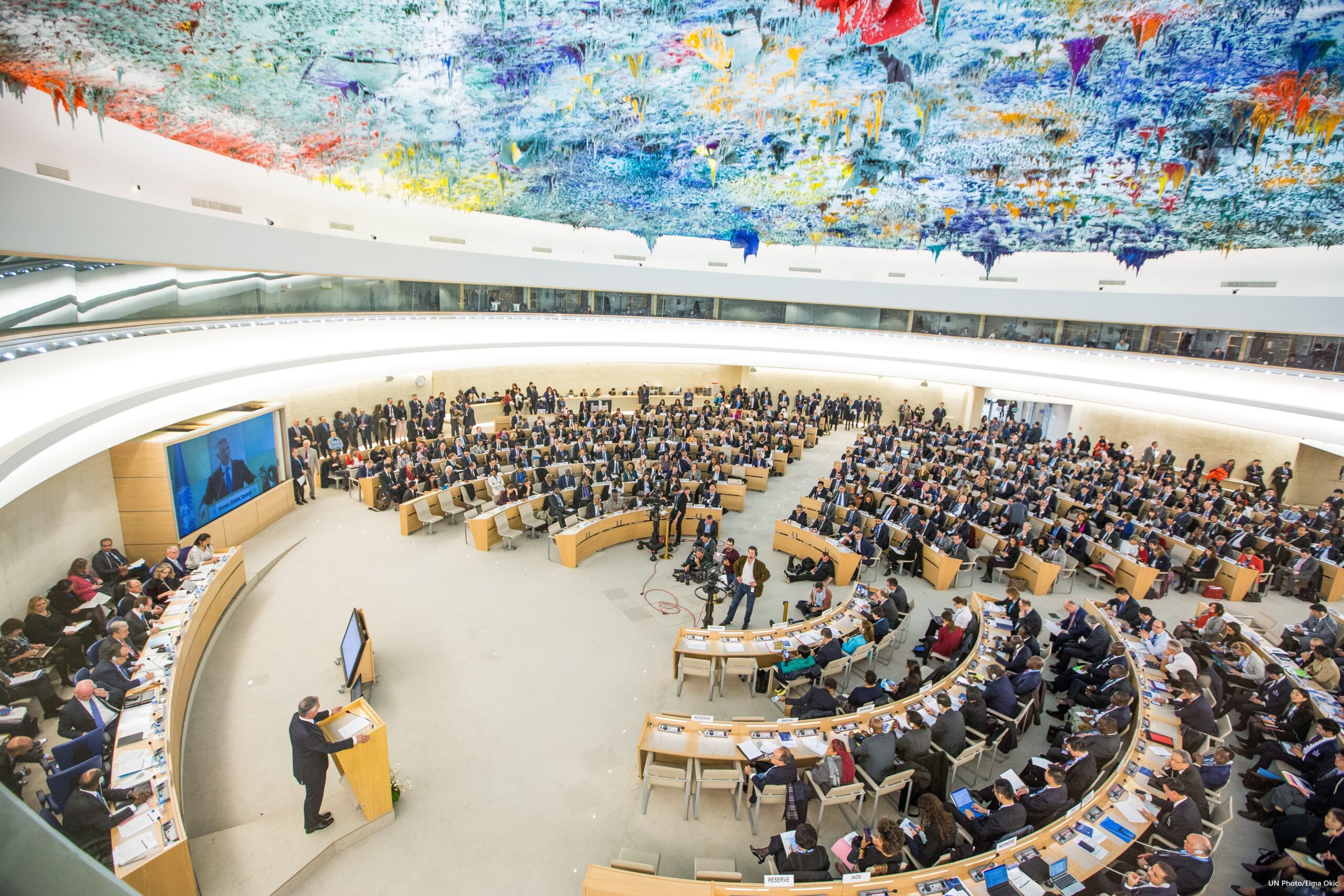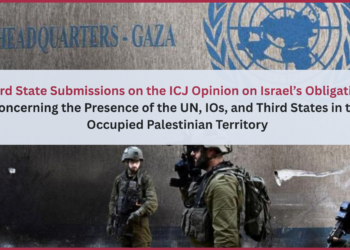Law for Palestine Addresses Suppression of Civic Spaces and Settler Colonialism at Human Rights Council Event
On 20 June, Law for Palestine participated in a side event titled “Occupied Palestine Territory: Civic Space Reclaimed” during the Human Rights Council session in Geneva. Organized by the Norwegian Refugee Council (NRC) in collaboration with The Association of International Development Agencies (AIDA) and Law for Palestine, the event aimed to address Israel’s suppression of civic spaces and the silencing of voices advocating for Palestinian rights.
Key speakers at the event included Miloon Kothari and Chris Sidoti from the United Nations Independent International Commission of Inquiry on the Occupied Palestinian Territory, Itay Epshtain, Special Advisor at NRC and AIDA, and Anisha Patel, Senior Legal Researcher at Law for Palestine.

Patel’s intervention focused on the curtailing of civic spaces as a tool of settler colonialism. Drawing from Law for Palestine’s report on Israel’s Arrest Policy against Palestinian University Students, Patel highlighted numerous cases of state aggression and intolerance towards Palestinian student activities, including politically motivated arrests without sufficient evidence. She shared the story of Layan Kayed, a Palestinian student who was arbitrarily detained for 16 months.
Patel emphasized a pattern of systematic policy-making aimed at suppressing Palestinian identity and undermining their political struggle for self-determination. She noted that legislations contradicting international humanitarian and human rights laws were being used to stifle civic spaces by arresting and detaining Palestinian students, thereby silencing opposition to the occupation and hindering anti-colonial movements and political leadership.
Patel also mentioned the preliminary findings of an upcoming report, which explored the impact of different legal regimes on Palestinian cultural heritage, aiming to disconnect them from their culture and identity.
In conclusion, Patel asserted that their engagement, investigations, and analysis, alongside the work of other entities like the Commission of Inquiry, led to the conclusion that the occupation was not merely belligerent but fundamentally settler-colonial. She underscored the discriminatory actions and policies faced by Palestinians, the role of curtailed civic spaces in hindering self-determination, and stressed the importance of consistent standards and support from third states in holding occupying forces accountable, as well as supporting civil society organizations.
Suppression Civic Spaces Settler Colonialism





